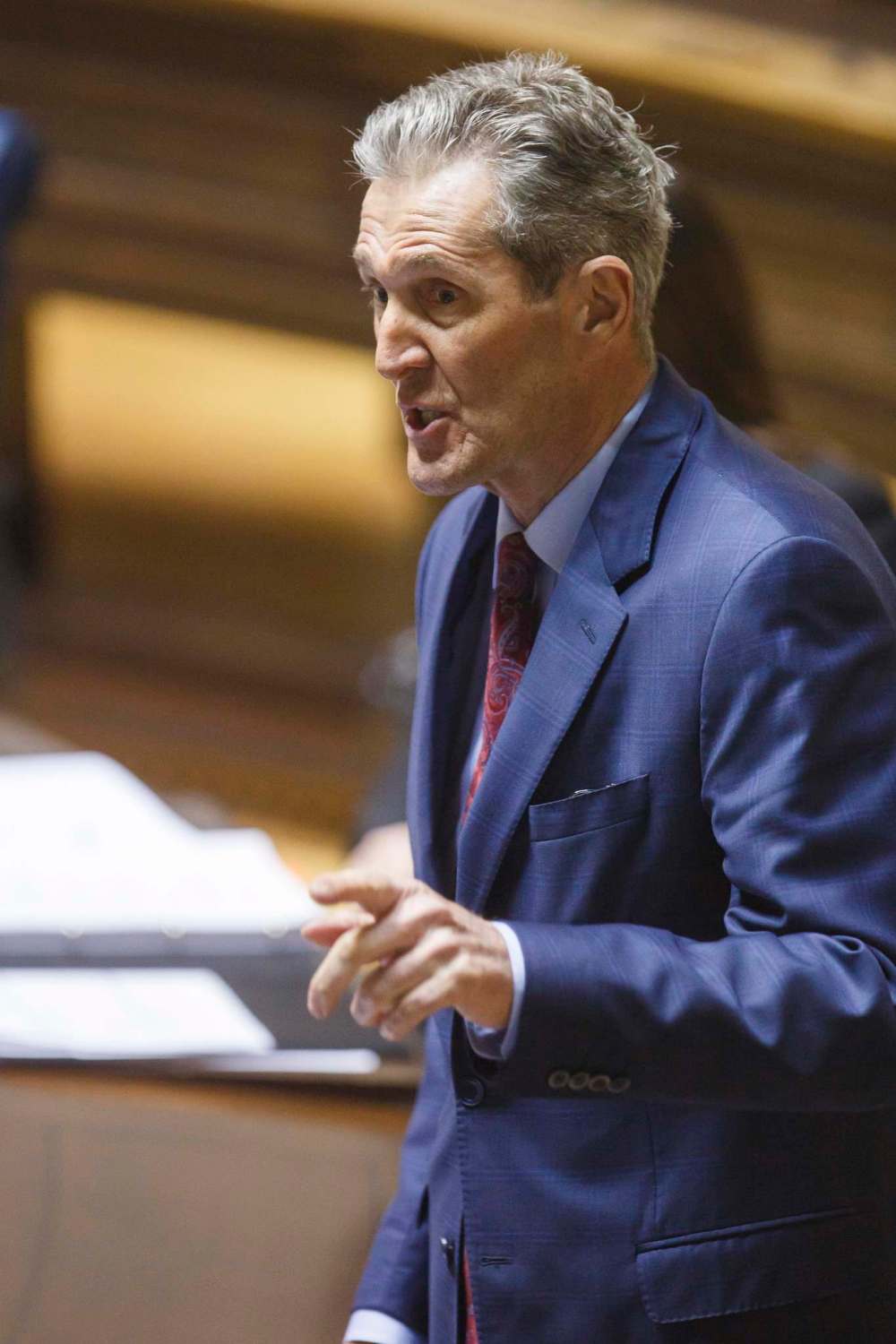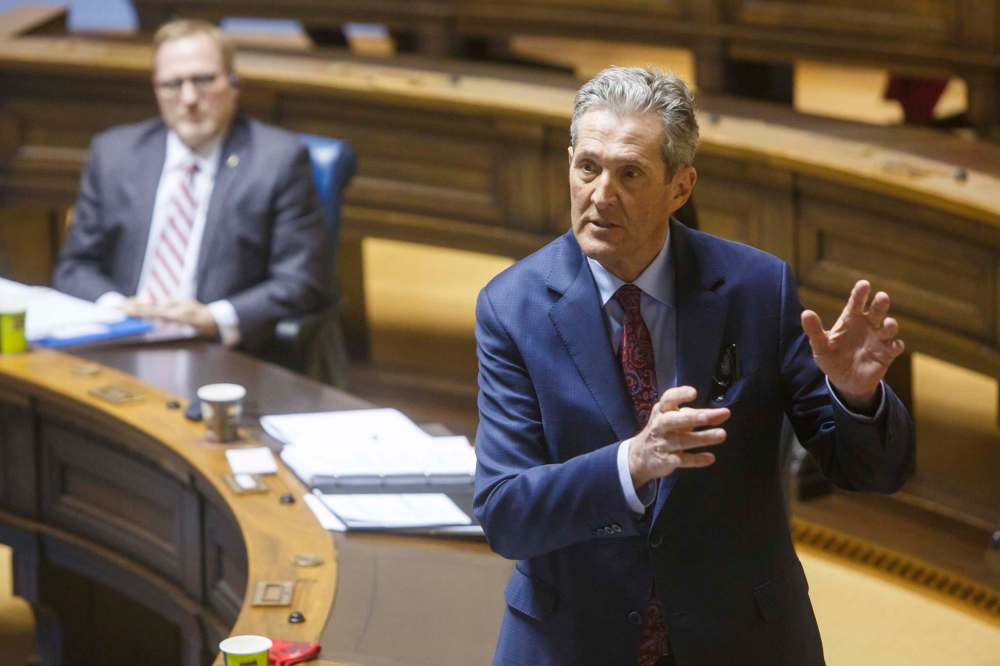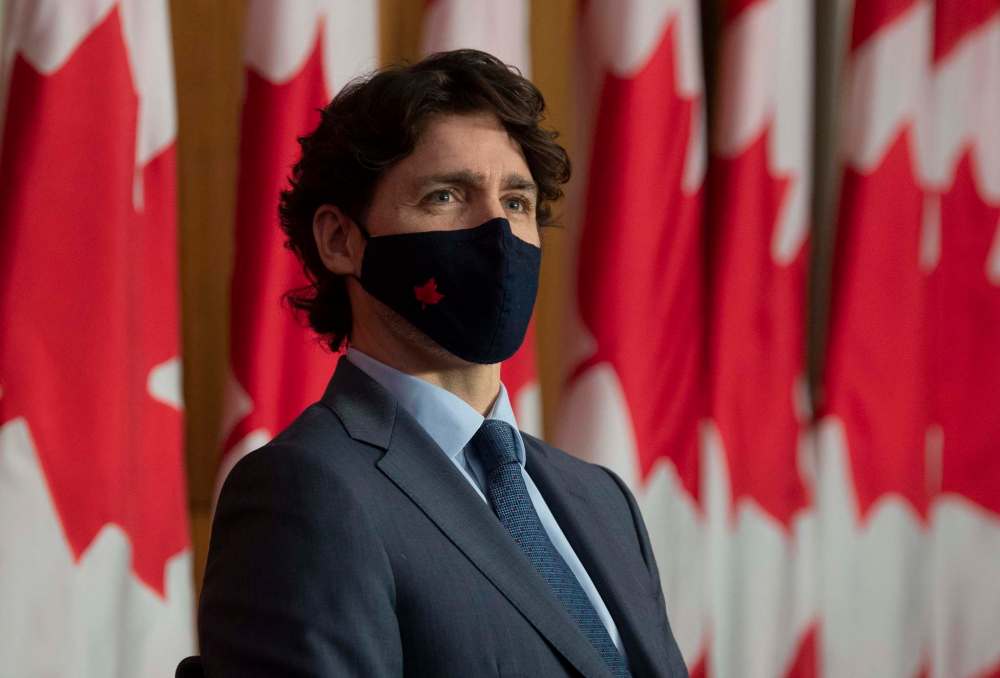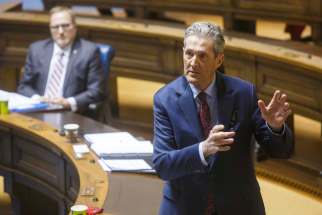Give Ottawa some credit, Mr. Pallister
Read this article for free:
or
Already have an account? Log in here »
To continue reading, please subscribe:
Monthly Digital Subscription
$0 for the first 4 weeks*
- Enjoy unlimited reading on winnipegfreepress.com
- Read the E-Edition, our digital replica newspaper
- Access News Break, our award-winning app
- Play interactive puzzles
*No charge for 4 weeks then price increases to the regular rate of $19.00 plus GST every four weeks. Offer available to new and qualified returning subscribers only. Cancel any time.
Monthly Digital Subscription
$4.75/week*
- Enjoy unlimited reading on winnipegfreepress.com
- Read the E-Edition, our digital replica newspaper
- Access News Break, our award-winning app
- Play interactive puzzles
*Billed as $19 plus GST every four weeks. Cancel any time.
To continue reading, please subscribe:
Add Free Press access to your Brandon Sun subscription for only an additional
$1 for the first 4 weeks*
*Your next subscription payment will increase by $1.00 and you will be charged $16.99 plus GST for four weeks. After four weeks, your payment will increase to $23.99 plus GST every four weeks.
Read unlimited articles for free today:
or
Already have an account? Log in here »
Hey there, time traveller!
This article was published 04/03/2021 (1743 days ago), so information in it may no longer be current.
It’s tough to take Premier Brian Pallister seriously when he complains about being shortchanged by Ottawa on health-care funding.
Manitoba receives the highest per capita share of federal transfer payments west of New Brunswick, and has for some time.
It has little reason to protest. Without those generous payouts, Pallister would not have come close to balancing the books in 2019-20.
Manitoba is set to receive $4.839 billion from Ottawa in total transfer payments in 2021-22. That’s up $264 million from last year, a 5.8 per cent increase. It’s a significant jump.
It also doesn’t include the hundreds of millions Ottawa has poured into the province for pandemic relief over the past year through direct payments to individuals, businesses, not-for-profits, and municipalities.
Federal transfers are made up of three major payments: equalization, Canada Health Transfer, and Canada Social Transfer. While only the CHT is earmarked specifically for health care, the reality is all three go into the province’s general revenues and can be spent on whatever it wishes.
Add them all up, and Manitoba gets more than almost any other province.
Its per capita allocation this year is $3,477, well above the national average of $2,181, and behind only New Brunswick, Nova Scotia and Prince Edward Island.
Equalization makes up the bulk of those transfers. It’s constitutionally guaranteed for provinces with less economic capacity. For Manitoba, it’s been a windfall.
The province now gets almost $1 billion more a year in equalization than it did when the Progressive Conservative party came to power in 2016.

It’s an amount Pallister rarely makes reference to — because it undermines his argument Ottawa is not paying its share of health-care costs. The reality is, much of the $2.7 billion Manitoba will receive in equalization this year will be used to fund health care.
Even CHT payments have increased at a reasonable rate since the Tories came to power. The annual payment jumped to $1.56 billion this year from $1.31 billion in 2016 — an average increase of 3.5 per cent.
Pallister says Ottawa’s share of what the provinces spend on heath care has been falling. That may be true over time, if only CHT payments are included in the calculation. Even then, the CHT has increased slightly from 19.7 per cent of Manitoba’s health-care spending in 2015-16 to 21.4 per cent in 2019-20.
When equalization is added to the mix, Ottawa is paying a far greater share of the province’s health-care bill than Pallister is willing to admit.

On Thursday, Canada’s premiers continued to demand more health-care dollars from Ottawa.
They make the same complaint every year: the federal government is supposed to be an equal partner in Canada’s universal health-care system, yet it’s not paying its fair share. It doesn’t matter how much more Ottawa doles out, it’s never enough.
Provinces such as Saskatchewan that don’t receive equalization payments may have more to complain about (although presumably they have the fiscal capacity to pay more of their health-care costs on their own).
As for Manitoba, it’s been getting more than its share from Ottawa over the past five years.

In 2015-16, when the Tories took office, the province received $3.346 billion in total transfer payments from Ottawa. That’s projected to jump to $4.839 billion in 2021-22, an average annual increase of 6.3 per cent.
The federal cash has gone a long way to help fund Manitoba’s $7.46-billion health-care budget. It also made it possible for the Pallister government to cut the PST and some other taxes.
Without it, the provincial government would be announcing a far bigger deficit at the end of this fiscal year (which ends March 31) than expected.
If anything, Pallister should be thanking Ottawa.
tom.brodbeck@freepress.mb.ca

Tom has been covering Manitoba politics since the early 1990s and joined the Winnipeg Free Press news team in 2019.
Our newsroom depends on a growing audience of readers to power our journalism. If you are not a paid reader, please consider becoming a subscriber.
Our newsroom depends on its audience of readers to power our journalism. Thank you for your support.
History
Updated on Thursday, March 4, 2021 8:39 PM CST: Fixes typo.










